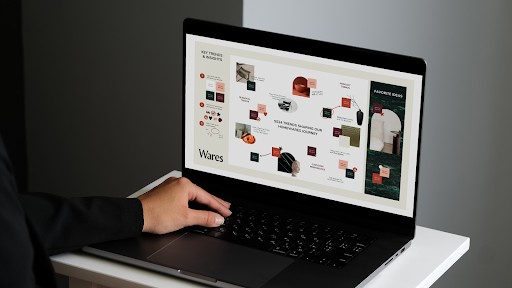I Took a Marketing Degree—and Ended Up Doing This?!
So, picture me at 22, fresh out of school with a crisp marketing degree and big dreams of running Mad Men-style campaigns in a high-rise office. I thought I’d be sipping espresso while pointing at data dashboards and making million-dollar decisions.
Reality? I was A/B testing subject lines for a cat food email campaign. Sexy? Maybe not. But insightful? Heck yes.
That campaign taught me one thing: what can you do with a marketing degree is a question with a thousand answers—and most of them are way more exciting than you’d expect.
Whether you’re already enrolled, thinking about the path, or staring at your diploma wondering “now what?”—you’re in good company. Let’s unpack what this degree really opens up for you.
What Do You Do in a Marketing Degree, Anyway?
If you’re imagining a marketing degree is just about making TV ads and choosing colors for logos—buckle up. It’s way more data-driven and psychology-packed than most people think.
You’ll study consumer behavior, digital tools, content creation, brand strategy, and yes, even a little bit of math. Think Google Analytics meets social storytelling. You’ll run mock campaigns, explore buyer personas, analyze case studies, and learn how to test and tweak like a pro.
There’s a reason every business—from indie coffee shops to Fortune 500s—needs marketing minds. The degree sets you up to speak the language of both creatives and analysts. It’s like being bilingual in a boardroom full of monolinguals.
Is Marketing a Useful Degree—or Just Hype?

Here’s the tea: I’ve had friends roll their eyes at “marketing” like it’s fluff. Meanwhile, I’ve helped triple a startup’s revenue with one campaign tweak. So yes—marketing is a wildly useful degree.
Why? Because it teaches transferrable skills. Data analysis, persuasive communication, UX understanding, storytelling, digital tools—those babies translate into roles across dozens of industries. Finance needs marketers. Healthcare needs marketers. Even the nonprofit saving bees down the street needs someone to build buzz (pun fully intended).
And let’s not forget the salary ladder. Entry roles might start modest, but a few years in? Digital marketers, brand managers, and CMOs are pulling six figures.
What Can You Do After Marketing Degree? Like, Really?

Let’s spill some career tea. After your marketing degree, your options are anything but cookie-cutter. Here’s a taste of what’s possible:
- Digital Marketer – Think paid ads, SEO, email campaigns, analytics dashboards.
- Brand Strategist – You’re the keeper of the vibe, voice, and vision.
- Market Research Analyst – Numbers, trends, and charts galore. If Excel gets you hyped, this is for you.
- Content Marketer or Copywriter – Word nerds, unite. Tell brand stories people actually want to read.
- Social Media Manager – The memes, the madness, the magic. But also: metrics, scheduling, and audience growth.
- Event Coordinator or PR Specialist – Love logistics and storytelling IRL? This one’s for the extroverts.
And those are just the headliners. Plenty of grads go rogue and start their own thing—freelancing, building personal brands, or founding startups. (I’ve done two out of three.)
How to Make the Most of What Can You Do With a Marketing Degree

Here’s where it gets juicy. If you want to milk your degree for all it’s worth, don’t just coast through lectures. You’ve got to build as you learn.
Start by getting hands-on experience. Run the social media for your campus org. Volunteer to promote a charity 5K. Make a dummy brand and build its website, blog, and Insta from scratch.
Then, learn the tools. Google Analytics, HubSpot, Semrush, Canva, Mailchimp—these platforms are your new BFFs. The more fluent you are, the faster you’ll land jobs (and impress bosses).
Also: network like you mean it. Follow marketers on LinkedIn. Join Slack groups. Go to meetups or webinars. My first paid gig came from a random DM. True story.
And finally—keep testing everything. Run an A/B test on your portfolio site headline. Compare engagement on two versions of your LinkedIn summary. Become your own little marketing lab.
FAQ: Real Questions, Real Talk
Q: Is it hard to get a job after a marketing degree?
A: Honestly? It depends on how much extra you’ve done. Degrees open doors, but your real-world experience, internships, and passion projects seal the deal. Start freelancing, offer free strategy sessions, or intern your face off. Employers love people who don’t wait to be asked.
Q: Can I work in tech with a marketing degree?
A: Absolutely. Tech companies thrive on performance marketers, growth hackers, UX researchers, and digital storytellers. If you speak data and customer journey fluently, you’re golden.
Q: What’s the best way to stand out with a marketing degree?
A: Show, don’t tell. Build a killer portfolio. Document your experiments. Create content that teaches others. If you can prove you understand audience behavior and ROI, you’re already ahead of 80% of applicants.
Q: Do I need a master’s degree to go far in marketing?
A: Nope. Most marketing pros climb the ladder through experience, not more school. If you specialize (like in data science or branding), a master’s can help, but it’s not a must. A sharp brain and a strong portfolio beat an extra degree nine times out of ten.
The Final Scoop Before You Jump In
If you’re still wondering what can you do with a marketing degree, the better question might be: what can’t you do?
This degree is like a Swiss army knife in business—versatile, creative, strategic, and always in demand. Whether you want to scale startups, pitch to global clients, or run your own biz, marketing gives you the lens to understand people—and the power to move them.
So whether you’re still studying, just graduated, or ten years in, here’s my advice: keep experimenting, keep learning, and don’t be afraid to reinvent your path. That’s the real magic of marketing—it’s always evolving, and so are you.
See you in the data dashboards, friend. And remember: if your campaign flops, just A/B test it. We’ve all been there.







